Call us now (+1) 646-693-8373
| Destinations | Contact Us |
Call us now (+1) 646-693-8373
| Destinations | Contact Us |
Call us now (+1) 646-693-8373
| Destinations | Contact Us |
Cambodia Tours – Life in Khmer villages continues largely as it has for generations beneath the Cardamom Mountains and along the banks of the Mekong. And the contemporary world seems very far away when you’re admiring the sunrise over Angkor Wat or the ruins of Tha Promh. Although a terrible past hindered growth for many years, Cambodia is now a nation on the rise. Cambodia trips include more than simply temple gazing, with Siem Riep’s rising reputation for hip cafés and excellent cuisine, and Phnom Penh’s riverfront boulevards and art galleries.
The best way to explore South East Asia is to go through Cambodia with Eskapas!
Southeast Asian nation of Cambodia is bordered to the northeast by Vietnam, to the northwest by Thailand, and to the north by Laos. Although it is still a relatively young and developing travel destination for Westerners, Cambodia has opened its doors to showcase its remarkable riches, all of which may be seen on tours of the country.
One of them is for you!
Discover your perfect vacation package using our convenient search and filter options, tailor-making a journey that captures world’s unique beauty and rich heritage just for you.
A little, stunning place in Southeast Asia worth visiting, it is physically located in the tropical monsoon zone and is sandwiched between Vietnam and Thailand, with Laos to the northeast.
Travelers can visit Cambodia any time of the year, but the most popular time to travel would be the dry season from October to April. Early summer can also be a great time to visit for those who don’t mind higher temperatures and more frequent bouts of rainfall. Visiting Cambodia during this time from May to June may allow for better wildlife viewing opportunities as well as fewer tourist crowds at popular sites like Angkor Wat and around Phnom Penh. The monsoon season runs from July to September and should probably be avoided as it can rain up to 2 out of every 3 days.
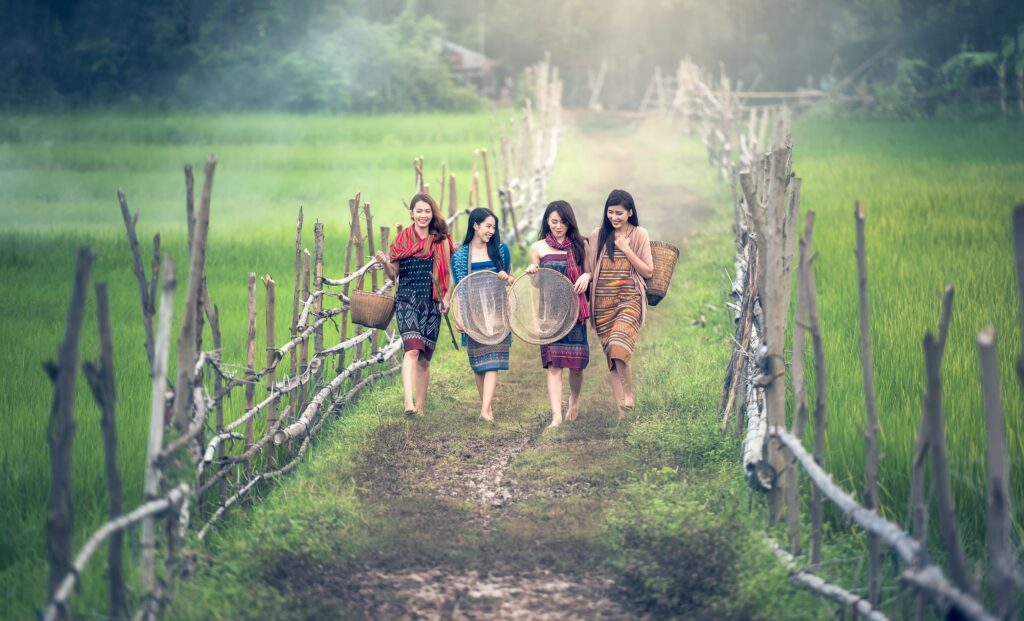
A hat is also recommended to keep the hot sun off your face, apply sunscreen when go on the beaches, visit Angkor temples as most of them are exposed in the open, apply insect repellent when you go for adventure trips through the jungle, mangroves or at countryside for overnights. Walking shoes, sneakers and sandals are good for sightseeing tours while strong footwear is highly recommended for remote adventures, trekking and hiking. As it is tropical monsoon and to keep you rehydrate, you should bring extra bottles of water with you. Mini first aid kit is also essential.
It is not recommended to drink tap water in Cambodia. Filtered water is a better option, try to use a refillable canteen or water bottle rather than buying bottled water. Remember to avoid ice in drinks if you don’t really know where it’s manufactured. Bottled water can be found and purchased at local stores and many at the street sides, and at mini marts.
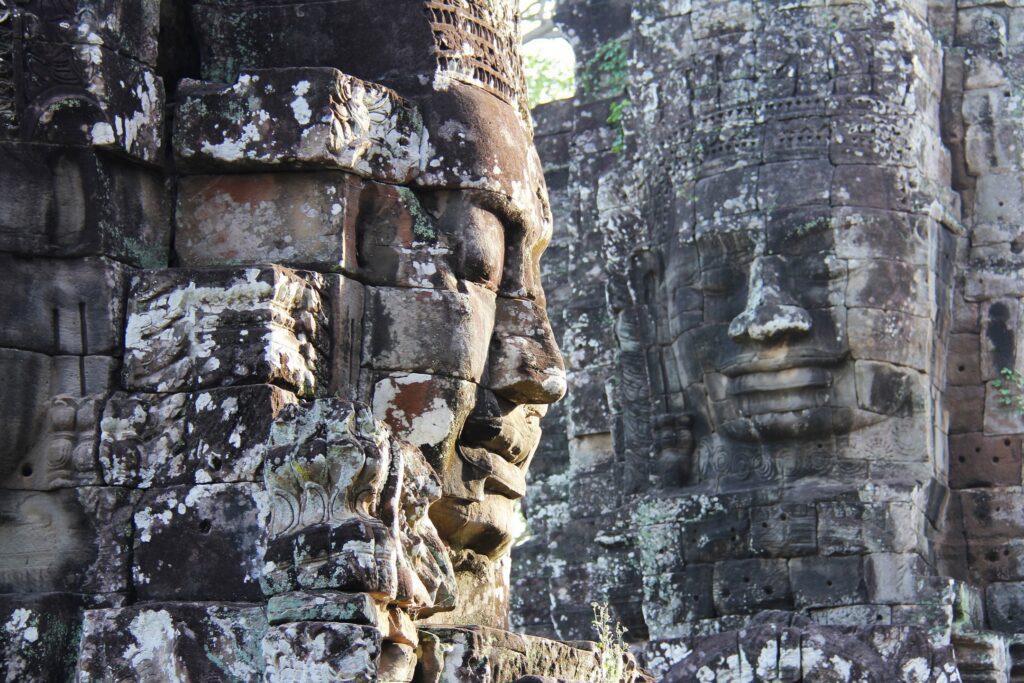
Cambodia uses 230V, 50Hz AC electricity with A / C / G sockets being used. It is recommended to bring a converter. Read more
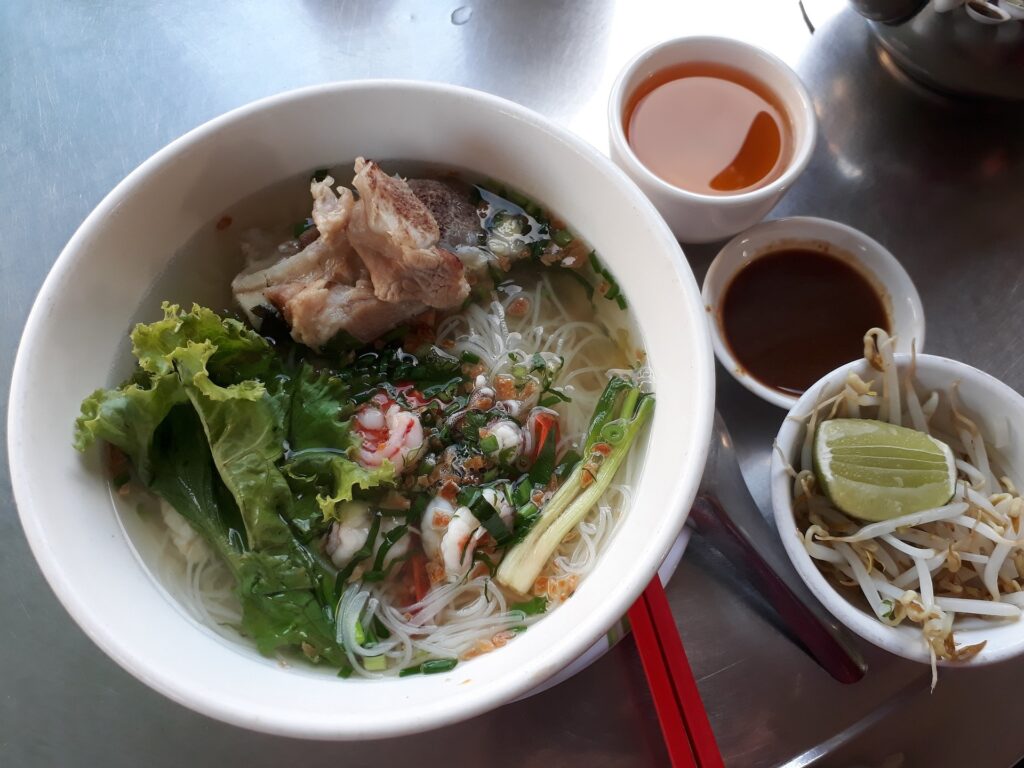 Cambodian cuisine is similar to that of Thailand and Laos. However, there are unique local dishes to try. The overall consensus is that Khmer cooking is similar to Thai cooking but with fewer spices. Like all other Buddhist countries, vegetarian food is readily available in most restaurants. If you are a vegetarian, vegan, allergic to any foods or adhere to a special diet, please advise us prior to your trip so we can comply with your dietary requirements. It is not advisable to drink tap water in any South East Asian countries. Bottled water is recommended but do check the expiry date before opening it. Ice is widely used in Cambodia and it is produced with treated water.
Cambodian cuisine is similar to that of Thailand and Laos. However, there are unique local dishes to try. The overall consensus is that Khmer cooking is similar to Thai cooking but with fewer spices. Like all other Buddhist countries, vegetarian food is readily available in most restaurants. If you are a vegetarian, vegan, allergic to any foods or adhere to a special diet, please advise us prior to your trip so we can comply with your dietary requirements. It is not advisable to drink tap water in any South East Asian countries. Bottled water is recommended but do check the expiry date before opening it. Ice is widely used in Cambodia and it is produced with treated water.
Tips are not required on any of our tours. However, it is customary to offer a small tip for exceptional service. Tipping amounts vary widely, but our recommendation for a full day tour is $3-$5 per day for your guide and $1-$3 per day for a driver.
Visa is required to join Cambodia tours. Passport holders such as American, Canadian, Europeans, Brazilian, and Australian can obtain visa on arrival and online (e-visa). You can apply for e-visa through government official website.
The Romork (or tuk tuk) is affordable with fun and very popular in Cambodia. You come across Romorks all the way out when you come out of the exit gate at airport. For short distance from your hotel to pup street or super markets, the charge is about 2-3 bucks and a full day service is from $15-$25 depending on places you go but for long distance from 45km up, air conditioning car should be an ideal. The most comfortable and escape from the heat, air conditioning cars are the best option, and price is $30-$45 for general tourist attraction sites. Electric-bike or bicycles are available for rent at the central area. Mountain bike cost $5-$7 and Electric-bike is $8-$12 per day. Motorcycle is not allowed to rent for tourists.
Peak seasons fall from the middle of December to the early of January, everything looks busy, hassle and hospitality services are unprecedentedly booked up quickly when most of people start to escape to celebrate Christmas and New Year Eve. However, from November to the end of February is considered as the best period for planning Cambodian Tours, the weather is pretty good, a bit warm and cold, the surrounding looks green and blue clear sky above. But in the other way around, rainy season (July to middle of October, heavy rain: mid Sep to early Oct) is also nice if you hate to see the crowds and get yourselves widest free spaces at temples, and feel the coldness of windy rain.
From March to June is dry and hot, some sightseeing and tour activities are not available during that period but it is less touristy and it is a special time to join and celebrate Khmer New Year (Songkran) if you’re in 13-16 April.
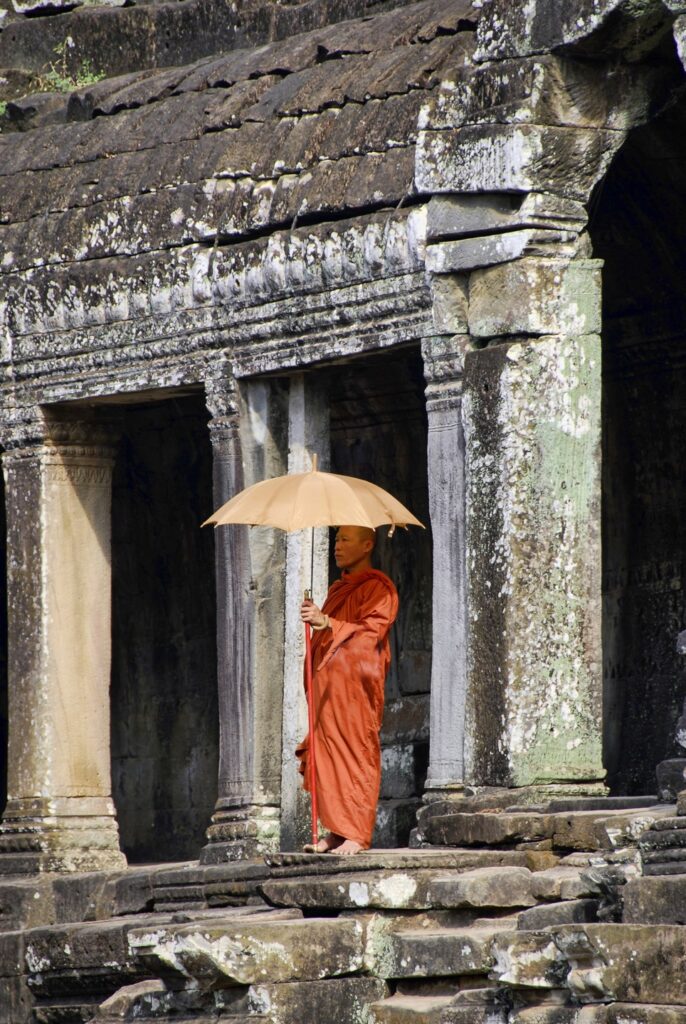
Yes, Cambodia is a truly safe country. There are occasional reports of petty theft and the occasional bar fight, but these can easily be avoided (especially the latter) if you exercise common sense. Do not leave your bag sitting at your feet while riding around in a tuk tuk or leave your expensive jewelry, cash or any valuable objects at unattended in a hotel’s room (better to keep it in a safety box). You will be warned not to carry much cash with you whenever you are on a trip. You don’t have to worry about landmines when you travel with local tour guide, 90% of landmines have been disarmed since the war completely ended. However, you are not allowed to enter a zone where you can see warning landmine boards especially the areas in the jungles near the borders.
Wildlife thrives in Cambodia’s unspoiled environments, encouraging travelers to step off the beaten path and explore the wilderness that covers vast parts of the country. On your trip, you can explore the following best places to see wildlife in Cambodia and spot the creatures that call Southeast Asia home
Greetings
The Cambodian greeting is called som pas: put your hands together and slightly bow your head. It is impolite not to respond to a greeting.
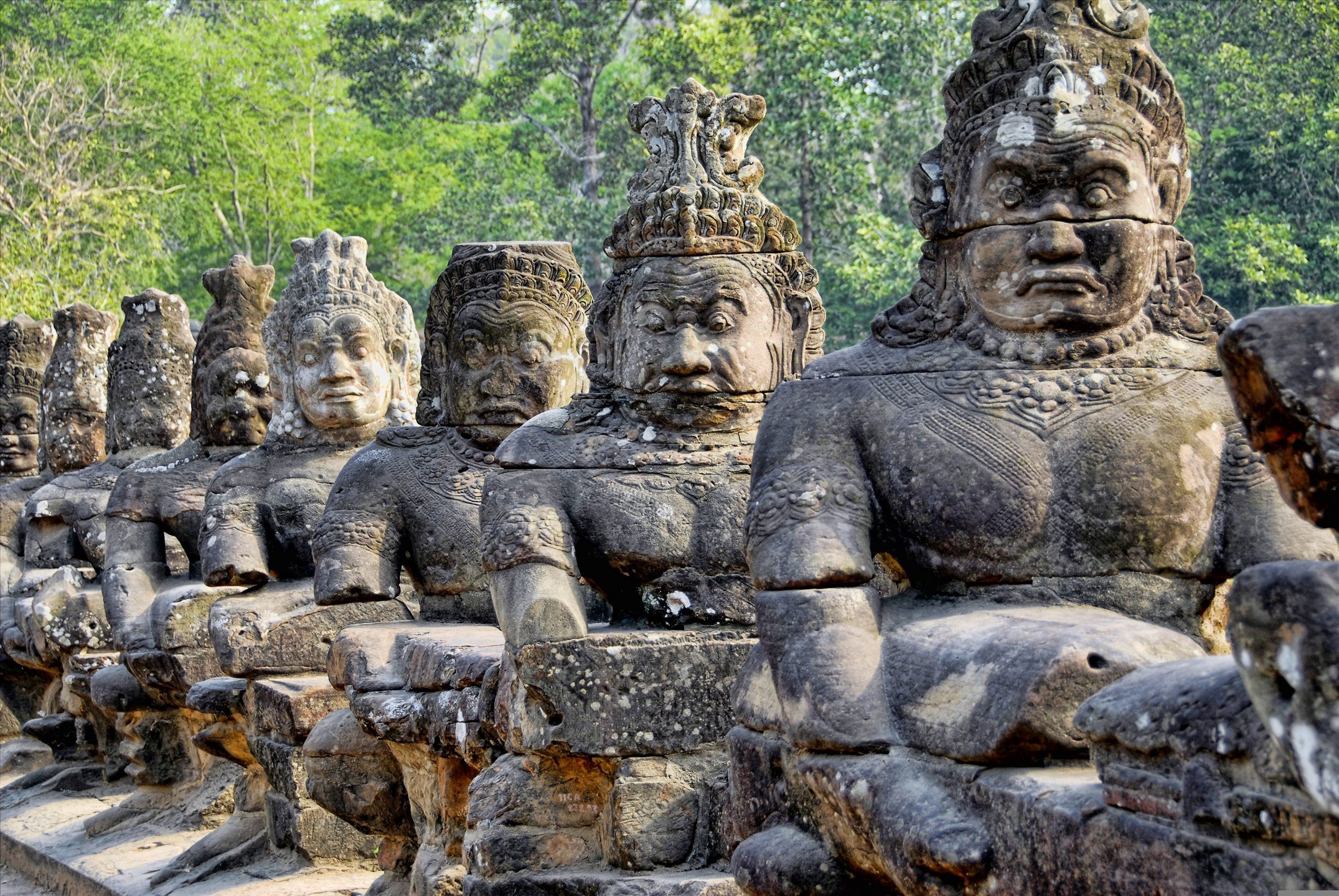
Entering a Home
As in other Asian countries, it is appropriate to take off your shoes before entering a house. Hats and sunglasses should be removed as well. This is a way of showing respect to your host.
Smartphones are a particular target, so avoid using your phone on the side of the street, especially at night. Walking or riding alone late at night is not ideal, as there have been several incidents of solo women travelers being assaulted in isolated areas, usually after dark.
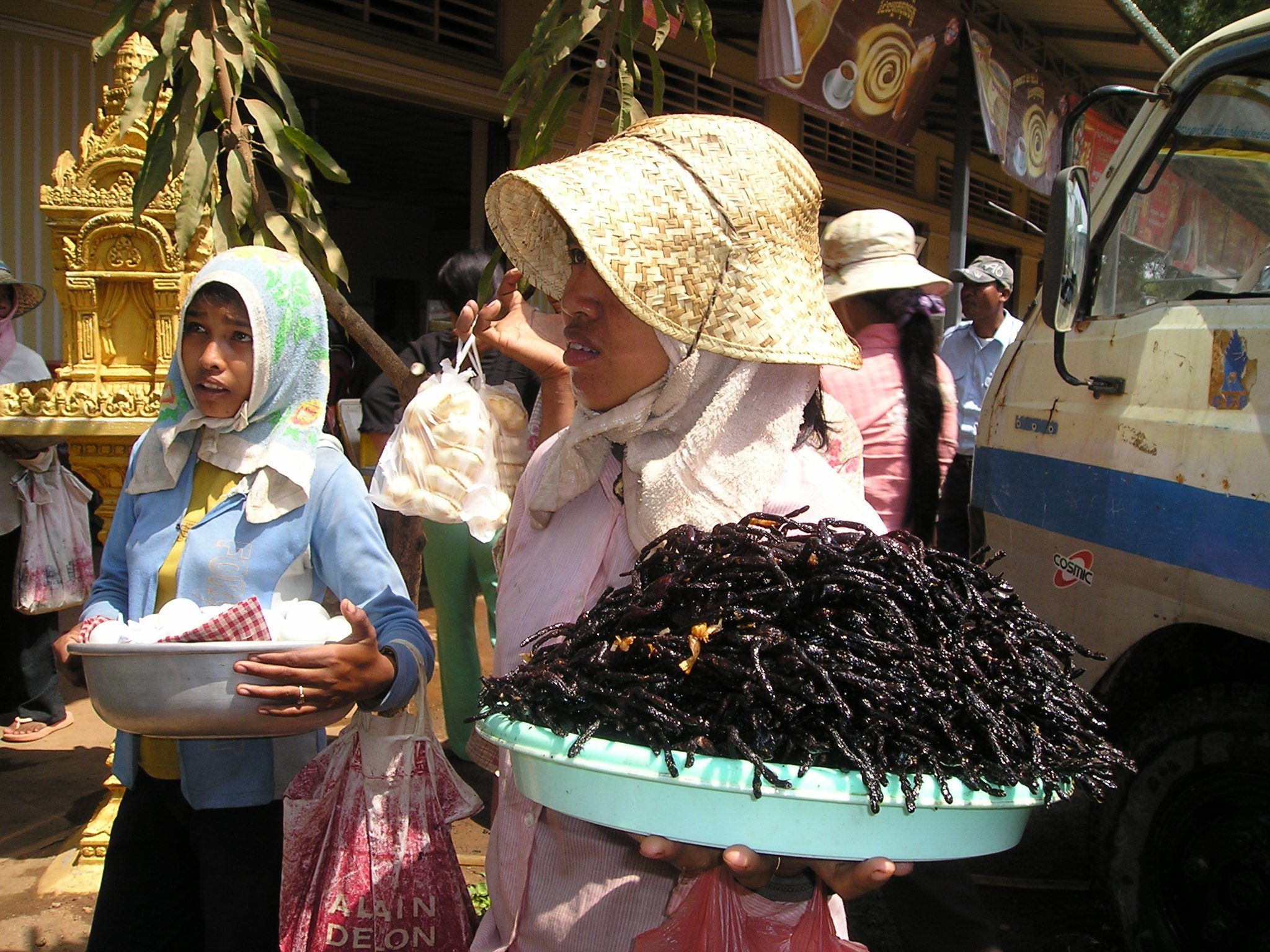
Dress Code
Dressing appropriately is important, especially when visiting a temple. When Buddhists go to a temple, they try to cover as much skin as possible. You should cover your upper arms and upper legs.
Temple Etiquette
Remove your shoes before entering a temple. A Buddha image is considered sacred, so do not touch it or stand on its altar. If you are sitting inside a Wat, tuck your feet beneath yourself.
It is forbidden for monks to touch or be touched by a woman. Monks cannot eat in the afternoon, so don’t offer them food or eat around them in the afternoon. When addressing a monk, you should use the word “Venerable” followed by his first name. When offering food to a monk, do not taste it beforehand.
